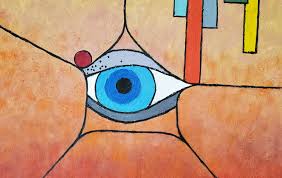
Are We Born Blind?
One of my favorite Simon and Garfunkel songs, “The Boxer,” was released in 1969. The last lines of the first verse go like this:
Still a man hears what he wants to hear and disregards the rest.
These lines are very similar to part of a lecture that, remarkably, I remember from one of my graduate-school classes in journalism/mass communication 50 years ago: that what you report is not necessarily what a reader understands, that a communicator must know his/her audience, and even then, the message you want to send may not be the one the recipient receives.
In many cases, that’s due to selective perception – hearing or seeing what we want to hear or see. Virtually all of us, including believers, are affected by this human condition.
Helps Determine Our Openness
So, what’s this have to do with the search for God? It’s that we’re affected by selective perception on both sides of the “God, no-God” issue and regarding our views of religion in general. In other words, our perception of reality, which is undoubtedly related to how we were raised and any resulting biases, helps determine our openness to religion.
The challenge for the believer, and the person searching for God, is to acknowledge these biases while making a clear, intentional choice for belief. Societal pressure may lead us in one direction or another, but if we want to know the “joy of the gospel,” we eventually have to choose.
One of the New Testament titles for Jesus is “Light of the World” and that dovetails with the many New Testament stories about Jesus’ encounters with blind people in the New Testament. One of the most interesting is the story of his meeting a “man born blind,” which constitutes the whole of the ninth chapter of the Gospel of John.
A Sign of Sin
It’s useful to know that in traditional Hebrew society, and undoubtedly many others in its time, blindness was a sign of sin and blind people were shunned and dependent on the charity of others.
About the man born blind and cured by Jesus, his disciples asked, “Rabbi, who sinned, this man or his parents?” Jesus shoots down both of those possibilities, saying that it’s simply providential. Apart from the interesting way Jesus cures him is the subsequent conflict among the cured blind man, his parents and the Pharisees – that group comprising the school of thought about religion and society that dominated Judaism at the time of Jesus.
The parents are called before the Pharisees and asked if the cured man was, indeed, their son and whether he had been born blind. Under pressure, the parents responded tersely, “He is of age. Question him.”
They did, and there ensues what appears to be a shouting match between the man and the Pharisees, ending with him being thrown out of the Temple. He subsequently becomes a Jesus believer.
Obvious
The implications for people searching for God are obvious. In many ways, we are “born blind” and have to seek our sight to find God. The hymn Catholics, and perhaps other Christians, sing at Mass addresses this need.
Open my eyes, Lord
Help me to see Your face
Open my eyes, Lord
Help me to see
Open my ears, Lord
Help me to hear Your voice
Open my ears, Lord
Help me to hear
Open my heart, Lord
Help me to love like You
Open my heart, Lord
Help me to love



